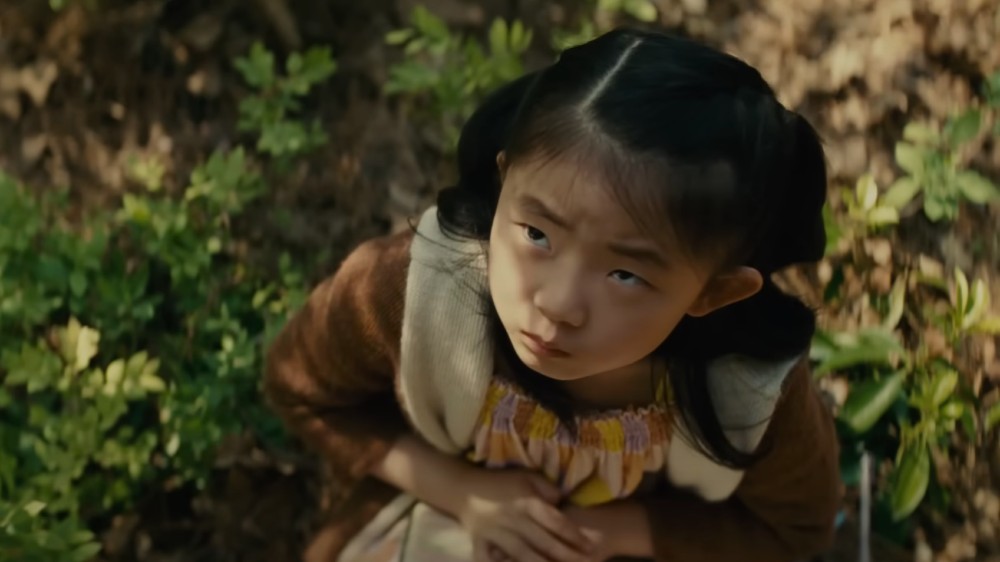The thing about a new M. Night Shyamalan movie is that, going in, one never knows whether it’ll be “one of the good ones.” Few directors have quite as uneven a track record: in the wake of the much-loved The Sixth Sense, Unbreakable, Signs, and The Village, Shyamalan helmed a string of disasters, culminating in the big-budget catastrophe that was 2013’s After Earth. On the other hand, 2016’s Split and 2019’s Glass were both great.
Knock at the Cabin falls somewhere in the middle.
The film centers on a gay couple, Andrew and Eric (Ben Aldridge and Jonathan Groff, respectively), and their adopted daughter Wen (Kristen Cui), who are forced to confront a nightmare scenario. Holed up in a lonely cabin in the forest, they are accosted by a quartet of heavily armed outsiders. Their leader, Leonard (Dave Bautista), comes bearing a terrifying and inscrutable message: the apocalypse has begun, quietly, and unless one of the family members is killed by the others, virtually all of humanity will be wiped out. His companions, drawn from all across the country, were pulled together through the same horrific visions that have now struck Leonard. Andrew and Eric must make a choice.
It’s an insane scenario, and of course they both refuse to accept it. But soon enough, news reports begin trickling in of gigantic tsunamis, killer plagues, and airline crashes…all harbingers of the doomsday that Leonard and his companions prophesied. And Andrew and Eric, despite all their skepticism, are forced to confront the possibility that maybe the strange visitors are right.
Stylistically, Knock plays out like a hybrid of Take Shelter and The Killing of a Sacred Deer, with some Funny Games mixed in. Like most Shyamalan movies, it’s never gruesome or even particularly frightening, but it is profoundly menacing, punctuating its philosophical ruminations with nerve-shredding fistfights for survival. Indeed, the tale’s true horror takes some time to really sink in properly: if you were confronted with this scenario, what would you do?
Bautista in particular is a standout, perfectly portraying a seemingly gentle giant with a steely and threatening core (it may be the role he was born to play). No one, for a second, doubts Leonard’s conviction in the truth of his apocalyptic visions. And it’s his strength of presence that anchors the entire flick, converting a story that could easily fly off the rails into something really memorable.
On the thematic front, Shyamalan’s work has consistently harbored religious motifs, and Knock is no exception to the rule. Here, despite the Book of Revelation overtones, the plot beats are decidedly of an Old Testament bent: the sacrifice of Isaac and the suffering of Job come to mind. That being said, these ideas never quite cohere as satisfactorily as one might hope. Perhaps that’s the point — the will of God is a gnomic and uncertain thing — but it feels like a few bits of connective tissue are missing. (Take that critique with a grain of salt though: after all, I have a soft spot for the over-the-top theological-apocalyptic melodrama of Knowing.)
None of that changes the fact that Knock, at its best, does pack an emotional wallop. Beneath all the pitchforks and exploding aircraft, this is a tale about sacrifices made for the sake of the world in which one’s children will grow up. As in all good dramas, a cosmic conflict turns out to be personal in the end.
This one isn’t a genre-blurring masterpiece on the level of Unbreakable, but it’s a better-than-average entry in the Shyamalan canon. And for a gnarly little February release, it’s hard to ask for much more.















